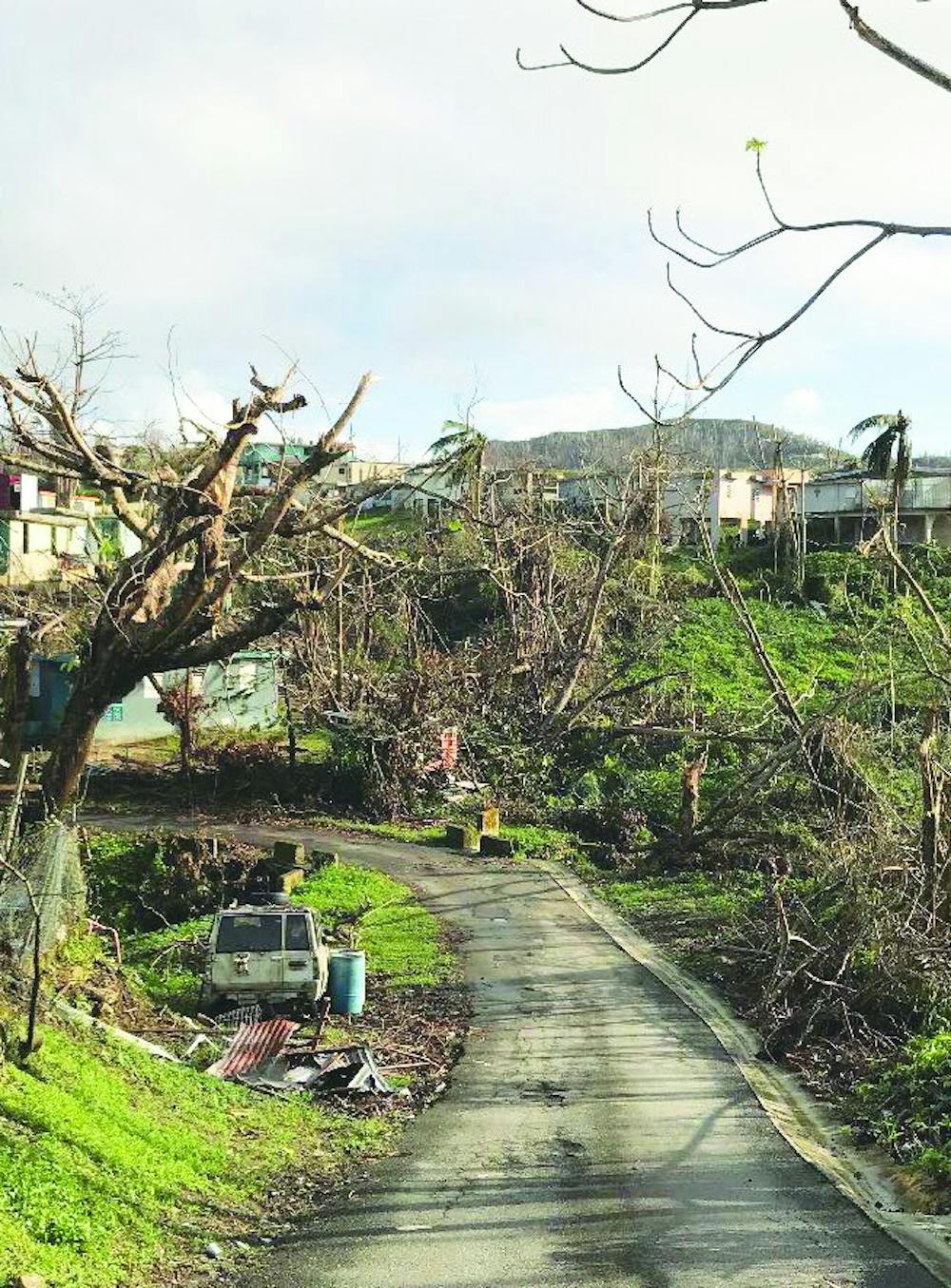
By Kassidy Hall | Contributor
Gas is scarce. The power is out. Homes are forced to survive off of a generator.
These are the current conditions described by junior Kristina Rivera of her great grandmother, cousins and other family members in their hometown of Las Piedras, Puerto Rico. Their severe circumstances have been ongoing for over two months.
The reason? Hurricanes Irma and Maria, both of which shook the island of Puerto Rico at different magnitudes.
"The first hurricane, Irma, grazed the outside of the coast," Rivera said. "After that, my grandfather who was living in Puerto Rico had to move into my home in Chicago. He had lost power and was surviving off of platanos, which are bananas."
The storms occurred a few weeks apart in differing areas of the Atlantic Ocean, impacting much of Florida and the Caribbean.
"Then Hurricane Maria came around and shook my little island," Rivera said. "I was worried. My family was there and there was no way of talking to them. Being away from my family in Chicago made it even harder because I continually had to call to be updated or nobody told me anything."
Although much of Rivera's extended family still lives in Puerto Rico, Rivera calls Chicago home.
"My grandparents moved (to the U.S.) when they were in their mid-teens," Rivera said. "They came because of better jobs - pretty much the hope of the American dream."
Even though she grew up in the United States, her Puerto Rican family background heavily influenced her upbringing.
"It caused me to do things differently than my other American friends," Rivera said. "I ate different foods, spoke Spanglish, dancing was huge in my house and I grew up with a different view on what it meant to be American."
After moving away from Chicago to go to college at Taylor University, her family culture continues to impact her life.
"While being here at Taylor I have grown closer to what it means to be Puerto Rican," Rivera said. "I realized not everyone is used to waking up on a Saturday morning to the sound of Marc Anthony and the smell of Fabuloso. It caused me to love my background more. Those differences are needed in community to flourish."
Similar to Kristina Rivera, Nate Rivera is a freshman at Taylor University and comes from a different Puerto Rican family.
"I am Puerto Rican with family members living in Puerto Rico currently," Nate Rivera said. "I feel that it is sad that there still isn't constant power for Puerto Rico. We (the U.S.) have more than enough resources to bring Puerto Rico back to a stable condition, but Congress waited too long to waive the Jones Act. It could have brought in supplies faster right after the hurricane hit. Now, the supplies cannot be transported throughout Puerto Rico sufficiently enough due to the damaged infrastructure."
Although Nate Rivera is concerned for the wellbeing of his native country, he believes steps can be taken to respond to the recent tragedy.
"I think Christians should try to respond on how they would with any other natural disaster that would happen here in the U.S.," Nate Rivera said. "They should donate or go there themselves to help the community get back on their feet."
Kristina Rivera also thinks it is part of America's job to help Puerto Rico, especially after disasters similar to the hurricanes.
"The political stance between the United States and Puerto Rico is sticky," Kristina Rivera said. "I believe if America can call my people to serve in their army then they should care for where the people come from. A hurricane is out of Puerto Rico's control. This isn't something they caused on themselves."
Even though Hurricanes Irma and Maria struck the Caribbean months ago, many island nations continue to struggle in the aftermath of the storms. Puerto Rico is one of several U.S. territories that were hit, but the U.S. as a whole has done little to help.
"My biggest fear is that they will be forgotten," Kristina Rivera said. "The news will move on and so will the people. Everyday, people should be aware because these people are a part of this country. I know there may not be much we can physically do here at Taylor, but it is our responsibility to pray and to be there for the broken. If we aren't aware, how can we pray?"


